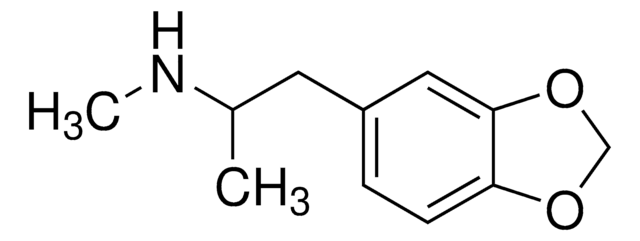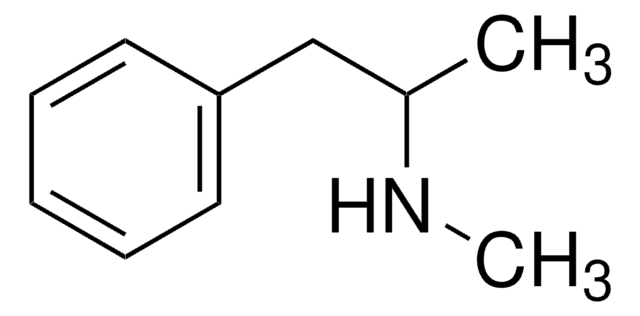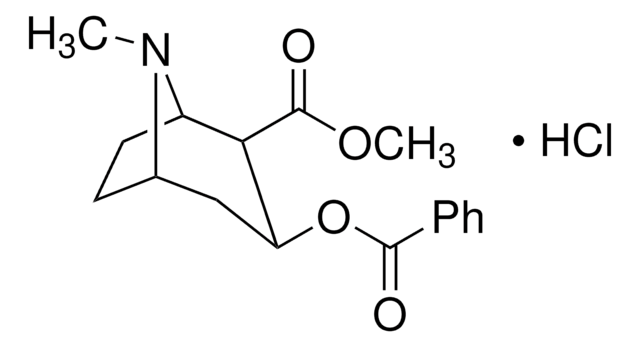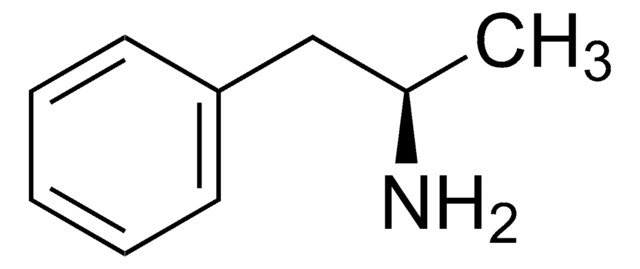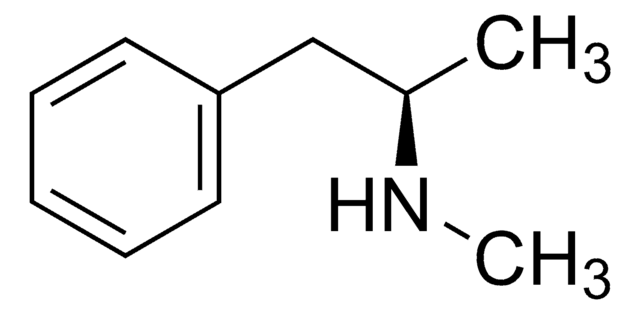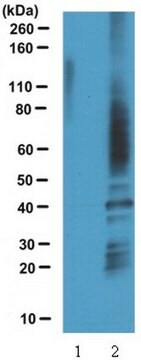AB5338P
Anti-Cocaine and Amphetamine Related Transcript Antibody
Chemicon®, from rabbit
Synonym(e):
CART/CARP
About This Item
Empfohlene Produkte
Biologische Quelle
rabbit
Qualitätsniveau
Antikörperform
affinity purified immunoglobulin
Antikörper-Produkttyp
primary antibodies
Klon
polyclonal
Aufgereinigt durch
affinity chromatography
Speziesreaktivität
mouse, rat
Hersteller/Markenname
Chemicon®
Methode(n)
ELISA: suitable
immunohistochemistry: suitable
western blot: suitable
NCBI-Hinterlegungsnummer
UniProt-Hinterlegungsnummer
Versandbedingung
dry ice
Posttranslationale Modifikation Target
unmodified
Angaben zum Gen
mouse ... Cartpt(27220)
rat ... Cartpt(29131)
Spezifität
Immunogen
Anwendung
Neurowissenschaft
ZNS-Kontrolle des Stoffwechsels
Belohnung & Sucht
Immunohistochemistry: 5-10 μg/mL It has been reported that the antibody will recognize CART in neurons (cell bodies) from the rat hypothalamic arcuate nucleus.
ELISA: 1:10,000-1:50,000 using 50-100 ng control peptide (Catalog Number AG228) per well.
Optimal working dilutions must be determined by the end user.
Physikalische Form
Lagerung und Haltbarkeit
Sonstige Hinweise
Rechtliche Hinweise
Haftungsausschluss
Sie haben nicht das passende Produkt gefunden?
Probieren Sie unser Produkt-Auswahlhilfe. aus.
Lagerklassenschlüssel
12 - Non Combustible Liquids
WGK
WGK 2
Flammpunkt (°F)
Not applicable
Flammpunkt (°C)
Not applicable
Analysenzertifikate (COA)
Suchen Sie nach Analysenzertifikate (COA), indem Sie die Lot-/Chargennummer des Produkts eingeben. Lot- und Chargennummern sind auf dem Produktetikett hinter den Wörtern ‘Lot’ oder ‘Batch’ (Lot oder Charge) zu finden.
Besitzen Sie dieses Produkt bereits?
In der Dokumentenbibliothek finden Sie die Dokumentation zu den Produkten, die Sie kürzlich erworben haben.
Unser Team von Wissenschaftlern verfügt über Erfahrung in allen Forschungsbereichen einschließlich Life Science, Materialwissenschaften, chemischer Synthese, Chromatographie, Analytik und vielen mehr..
Setzen Sie sich mit dem technischen Dienst in Verbindung.

